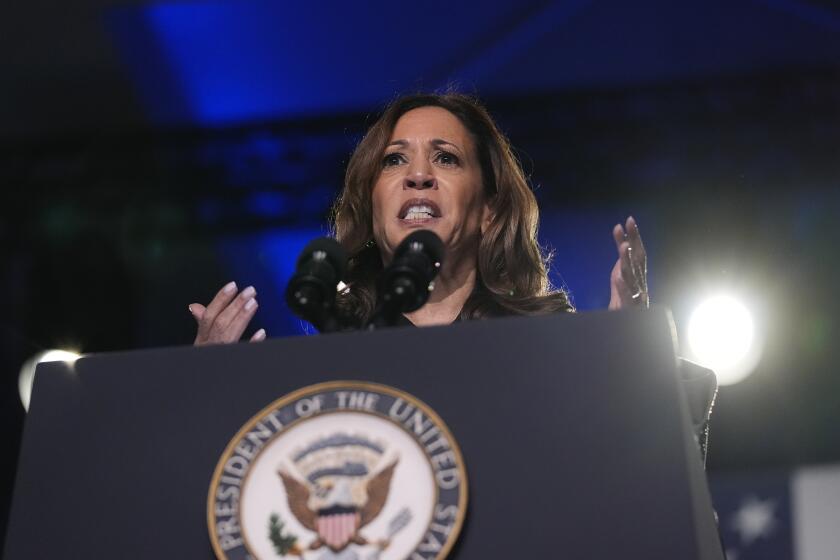U.S. Policy in Nicaragua
Assistant Secretary of State Langhorne Motley’s article (Editorial Pages, April 23), “What Sandinistas Fear is Democracy,” brings to mind the apocryphal story of the comments of a college professor on an overeager student’s term paper: “It contained much that is new and much that is true. Unfortunately, what is true is not new and what is new is not true.”
Motley suggests that the rejection by Nicaragua of President Reagan’s terms for a “cease-fire” indicates the Sandinistas fear and oppose democracy. That is but a half-truth.
Certainly, there is nothing approaching true democracy in Nicaragua, where the continuing civil war has given the government the pretext of curtailing civil liberties and imposing press censorship. Only Sandinista partisans and naive leftists claim otherwise. But to dignify Reagan’s proposal coupled with a request for $14 million in aid to the contras as a “peace plan” is to multiply the deceit of our Administration’s policy.
What Motley conveniently ignores is the fact that the terms offered by Reagan probably would not be acceptable to any sovereign nation. Essentially, in return for a cease-fire and the dubious value of U.S. recognition of President Daniel Ortega, Reagan demands that the Nicaraguans negotiate and achieve some accommodations with the contra guerrillas by June 1. Implied in Reagan’s offer is that Nicaragua accept the legitimacy of the Administration’s threat unless progress acceptable to the Reagan Administration is made in the talks, an additional $14 million in military aid will be supplied to the rebels via the CIA. As Reagan has made clear his intention to force the Sandinistas to cry “uncle,” the Nicaraguan government has to assume that Reagan would escalate aid to the guerrillas should Managua not make the concession demanded by Reagan before the deadline.
Motley recited several allegations of atrocities against the Sandinista regime in its conduct of the war with the rebels. That, too, is not new. But to portray the contras as peace-loving and democratic is to deny truth. As in most guerrilla wars, there is probably as much evidence of terror against innocent persons committed by the contras as by the government troops. Furthermore, President Reagan’s characterization of the contras as the moral equals of our Founding Fathers insults the leaders of the American Revolution. While several contra leaders are former revolutionaries disillusioned with the repressive tendencies of the Sandinistas, probably most are former supporters of the corrupt and even more oppressive regime of Anastasio Somoza. American support of the contra effort to overthrow the present Nicaraguan government is so indefensible that the Reagan Administration has resorted to this misrepresentation of the nature of the conflict in order to court public opinion.
JOEL A. DAVIS
Glendale
More to Read
Sign up for Essential California
The most important California stories and recommendations in your inbox every morning.
You may occasionally receive promotional content from the Los Angeles Times.










